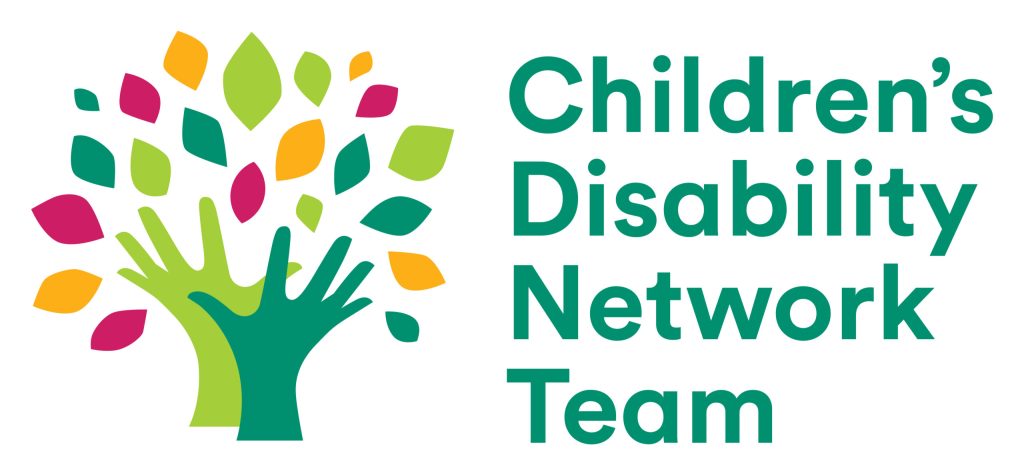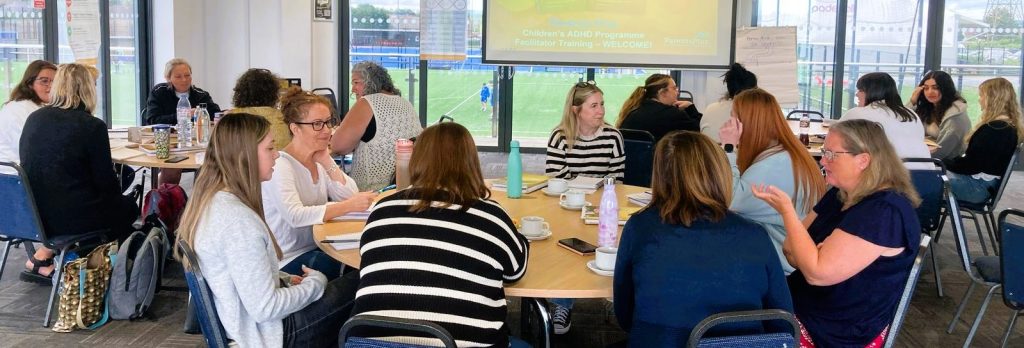
Facilitator Q&A
In this forum, we include questions that have been suggested and answered by Parents Plus facilitators, supervisors and trainers. If you would like to suggest a topic for discussion please submit it here.
-
Should parents whose children are not currently living with them attend a Parents Plus group?
Facilitator Best Practice Question:
“Should parents whose children are not currently living them attend a parents plus group? For example, we often get parents whose children are in care referred to our Parents Plus Children’s Programme and also parents (usually fathers) to our Parenting When Separated group who don’t currently have access to their children. Often these referrals are made through the courts of the social work department”.
Answer: “The short answer is that parents whose children are not currently living with them can attend a Parents Plus Group. However, it does need to be carefully considered and managed well if it is to work well for the parent. While their children may not be living with them, the ideal is that the parent has regular contact with their children while attending the group. This is because the course content has homework each week that requires the parent to be with their children to try it out. If their benefit is maximised then they need to be with the child at least once a week (and ideally several times). If the children are in care it’s worth checking out access and contact arrangements in advance. I suggest facilitators work with the parent and referring social worker to agree what the access arrangements will be for the course. Sometimes, it is worth increasing the level of contact during the course, so the parent can try out the parenting skills. This can be important in the context of a parenting assessment or when there is a plan for the children to return home. When discussing details with the social worker you should always have the consent of the parent involved and you should try to have collaborative and clear goals created for the parents attendance. In the case of the Parenting When Separated course, many parents are referred to attend this in the context of a court settlement and sometimes as a prelude to contact being confirmed. As the PWS course is focused on the parent’s personal development and the relationship with the other parent, this is a valid reason for attendance. At the end of the course, facilitators can confirm the attendance of the parent via the course, but we recommend that they avoid giving an assessment of the parent’s progress (unless they have specialist training or professional experience in doing this aside from their Parents Plus Training)”.
John Sharry CEO and Founder, Parents Plus
-
What to do when parents have little/no contact with their children?
Facilitator Best Practice Question:
“I just had a query in relation to parental participation on the Children’s Programme. The next parenting programme we are rolling out is due to begin soon and we have a had a number of parents interested in taking part who have little/ no contact at present with their children due to ongoing custody hearings but have been court-ordered to complete a parenting programme. My question is, do you feel it is appropriate for parents in this situation to take part in the programme?”
Answer: “It is not ideal for a parent to attend a Parents Plus Programme when they have little/ no contact with their children. As the Parents Plus Programmes are practical courses, they are designed for parents who see their children on a daily or at least a weekly basis. Each week, parents are given ‘homework tips’ and strategies that they can try out at home with their children and then report on progress to the group the following week – this is how the Parents Plus model works. Progress would be curtailed greatly if the parents cannot see their children and try out the ideas. Indeed, they may become demoralised in the group if other parents are reporting changes and successes when they have no possibility of doing this. The Parenting when Separated course is somewhat an exception as a lot of the course content is about the parents own personal development and coping, so occasionally some parents with little contact with their children can still attend and benefit (though the ideal is still that they are in contact with their children during the course). This is often the case for fathers applying through the court for contact or guardianship When parents are referred to attend when they have little contact with their children, it is important to explore fruitful ways that they can attend. Sometimes there is an opportunity to use the referral as a chance to set up better contact for the parent. For example, in many situations Parents Plus facilitators have negotiated with the referring social worker for the parent to have increased access to the children during the course, so they can benefit more. Indeed, this can fit with a practical child protection plan that is focused on ensuring the parent has more constructive involvement in the child’s life or when there is desire to test out if the child can be returned to their care. With court referrals there can still be opportunities to negotiate an increased level of contact during the attendance at the group, and many judges will recommend this if it they are informed of this option. The options above do require a high level of negotiation with the statutory services. However, there are also incidences where the parent cannot achieve increased or even some with contact their children and still wants to attend the course. In those instances you can still allow them to attend once you have talked through the issues with them such as how they might feel doing the course, and what they might disclose about their situation in the group. An alternative might be to delay attendance until the next group and to use the intervening time to support them to resolve the issues of contact. For example, you might do a number of individual sessions with them and advocate on their behalf with the services with the aim of starting a group in the near future”.
John Sharry, CEO, Parents Plus
-
Using the Parents Plus DVDs when running a group.
Facilitator Best Practice Question:
“When showing the some of the Parents Plus DVDS, in my last group, one of the parents said she thought the scenes were too idealistic and not relevant to the behaviour she was dealing with. I was a bit thrown and found this hard to deal with in the group”.
Answer: “It is very common for parents to challenge the DVD footage and say that situation is not relevant to them or too idealistic or that the footage is dated (in the case of some of the role play scenes). When experiencing these challenges as a facilitator it is easy to feel thrown off course and to become defensive. However, the important thing to realise is that such challenges are common and even welcome in a group. When the parents are engaging critically with the videos this can be viewed as a strength and is preferable to the parents being passive, or disinterested in the videos . A questioning critical stance is a sign that the parents are really engaging in the material and thinking it through and gives rise to an energetic group process. When parents challenge the material a thoughtful response on the part of the facilitator is what is required. It is important not to argue or disagree with them, but instead to take time to understand their point of view and to guide them to adapt the ideas to their own situation. Below are two examples. Have a look in the Group Skills Chapter in the Parents Plus manual for more ideas”.
Parent 1: That last scene looked like it was acted. The situation is a bit dated. Facilitator: I know what you mean, it is a role-play of a common family situation… However, what principles do you think the parent was demonstrating in the scene? How do you think these might work in real life?
Parent 2: That last scene seems a bit too idealistic. The child didn’t shout that much and he seemed to come out of his mood too quickly. My son would never do that.
Facilitator: Yeah, I agree that in other real-life situations children might behave worse or take a bit longer to come round. What principles to you think might apply in those challenging situations? What do you think the parent should do in the scene if the child continued to misbehave? How should they respond?
John Sharry, CEO Parents Plus
-
How best to handle the Review of the Week section when running a Parents Plus Group?
Facilitator Best Practice Question:
“When running our Parents Plus group, we often find the Review of the Week goes on for much longer than planned. Generally the reason is that we gets loads of specific issues raised by the parents such as getting children to bed on time, mealtime battles etc and we want to respond to their questions and spend group time helping them. Of course this means we often miss out on covering all the Positive Parenting and Discipline topics as suggested in the manual. Do you have any suggestions as to how handle this?”
Answer: “When running a Parents Plus group, the goal is to try and respond to the individual goals and questions of the parents. You want to help them make progress on the reasons that brought them to group so they get the maximum out of it. In addition, responding to their requests is very motivating for them as it makes them feel part of the group and that it can really benefit them. The challenge is fitting all these ‘extra questions and topics’ within the limited group time and making sure it does not mean the parents miss out on ‘core ideas’ that are essential for them (and important in solving the problems they are raising). One solution to this challenge is to reserve a 20 minute problem solving section at the end of group sessions, when you will set aside time to integrate the ideas that were raised and apply them to specific topics. This means you would alter the timing of the group elements according to the table below. This new format will allows you to keep the Review of the Week within a boundary and ensure the core Positive Parenting and Discipline topics are covered. After consultation with the Parents Plus Facilitator Network,this format is proposed to be the standard one in the new editions of our manuals. Below is the suggested steps to implementing the new format in practice: 1) If a parent raises a specific question during the Review of the Week, you have the option of postponing discussion on this. For example, you might say ‘that is an important question, lets set aside some problem solving time for that later.’ 2) It works to keep a flip chart list of all the questions parents raise. You can give this flip chart the friendly title of the ‘Car Park’ – questions are parked here for discussion later. 3) During the 20 minute section at the end of the group, you address one or two of the specific topics using the Parents Plus problem solving model. This is a great way to give parents examples of integrating the ideas from the course and applying them to practical situations. 4) If there are no specific questions in the ‘Car Park’ you can use the time for other important universal important issues such as Parent Self Care or Stress Management”.
John Sharry, CEO Parents Plus
-
If a parent has no contact whatsoever with their child’s other parent, can they still attend the Parenting When Separated Course?
Parents Plus Facilitators Best Practice Question:
“I am planning to run a Parenting When Separated programme and have five parents signed up for the course. Many have previously completed the Early Years programme with me previously. I have three parents signed up who co-parent separately and have two parents signed up who have no contact whatsoever with their child’s other parent. I am concerned for the latter two parents attending the group as the material covered seems mostly applicable to parents who co-parent separately and really advocates for both parents to complete the course and build a common ground. I have read in the manual and it advised that the course facilitator try contact the other parent when they are not involved in the child’s life to try get them to attend a separate course and I have queried this with the parent who is attending the group and she has assured me that it is in the child’s best interest that I do not contact the other parent. What should I do when contacting the other parent is not an option? How do I accommodate the two parents who are parenting alone? I do not want to say this course is not for them as they were so excited about it and want support in this area”.
Answer: “It is a good idea to invite parents who are parenting alone to attend Parenting When Separated course once the decision is made collaboratively. Indeed many lone parents get a good deal from attending in terms of thinking through the issues for their own parenting and parts of the course directly refer to the challenges of lone parenting. In addition, attending the course also gives them space to think about the role or non-role of the other parent for their child and how they can talk about this to their children in a constructive way. During the course, some parents consider making a fresh contact with the other parent or with their extended family if they feel that is in the best interest of their children. In the screening it is a good idea to discuss these issues with them and even show them the rough content of the course so they can be sure it is right for them at this time. But if your parents are interested and motivated then by all means include them in the PWS course. As with all PPP courses make sure to collect feedback from them using the session rating forms so you can check in that the course is going well for them and adapt accordingly. Screening sessions are important in all the Parents Plus Programmes but they are particularly important for the Parenting When Separated course as you need to give the parent time and space to talk about their situation and you have the sometimes tricky issue of asking about the involvement of the other parent As you rightly say we do recommend that facilitators raise the question of whether to contact the other parent with a view to sharing with them information about the course and possibly finding them a place on a separate course for them. However, you always ask permission to do this from the attending parent and if they say they think this is not a good idea then I would suggest you trust their judgement on this. You can reopen this question once the course is completed if you think it important for the child”.
John Sharry, CEO Parents Plus







